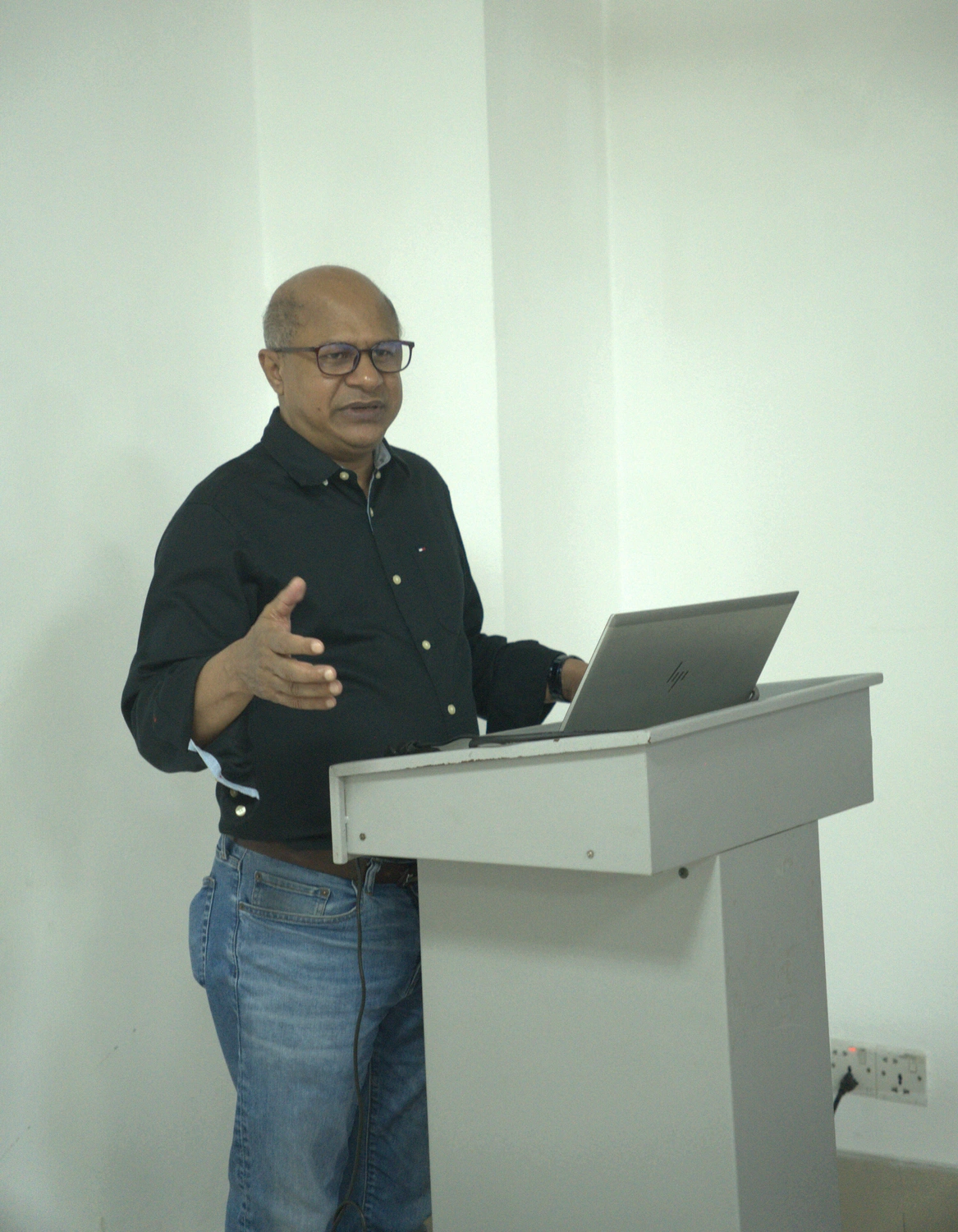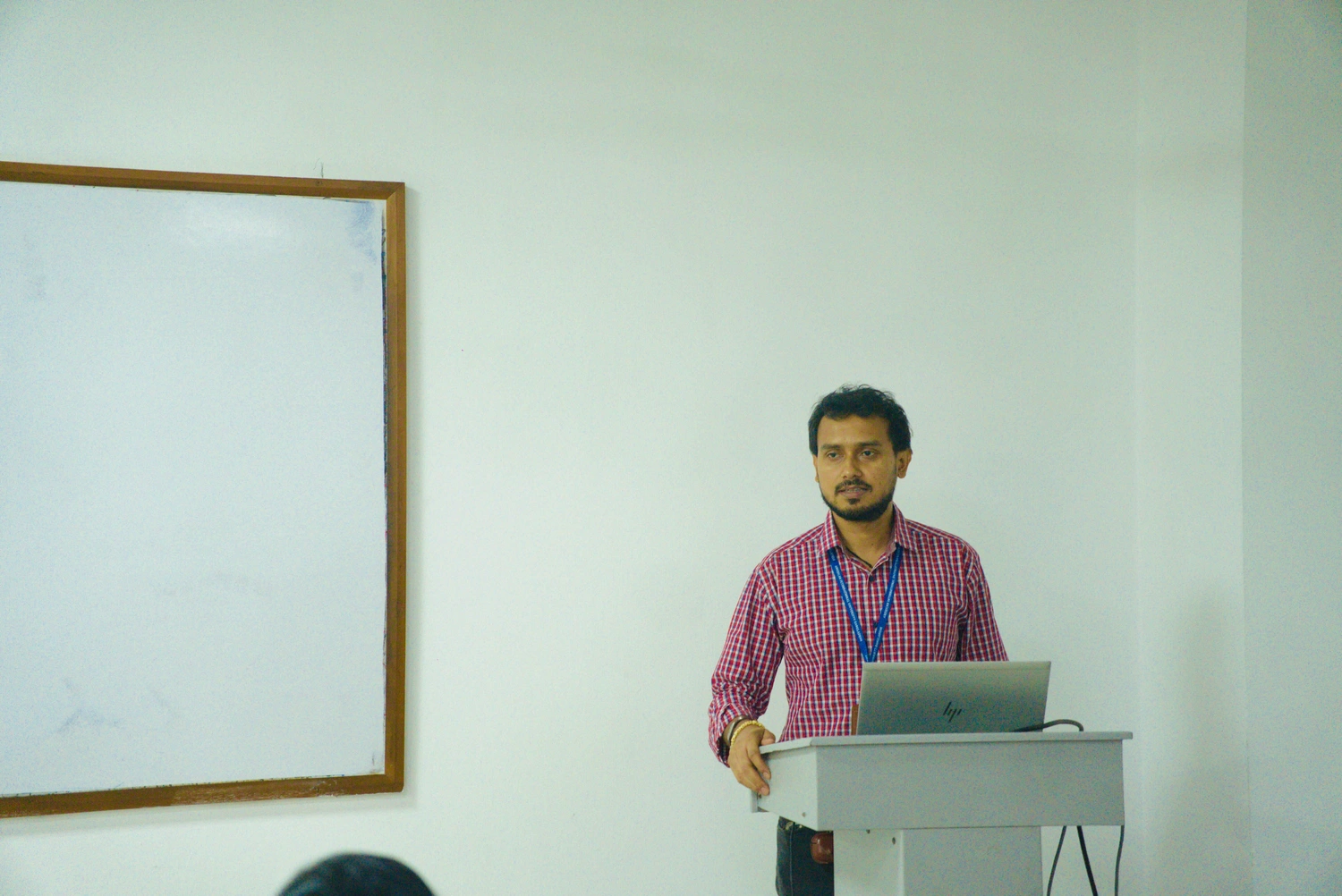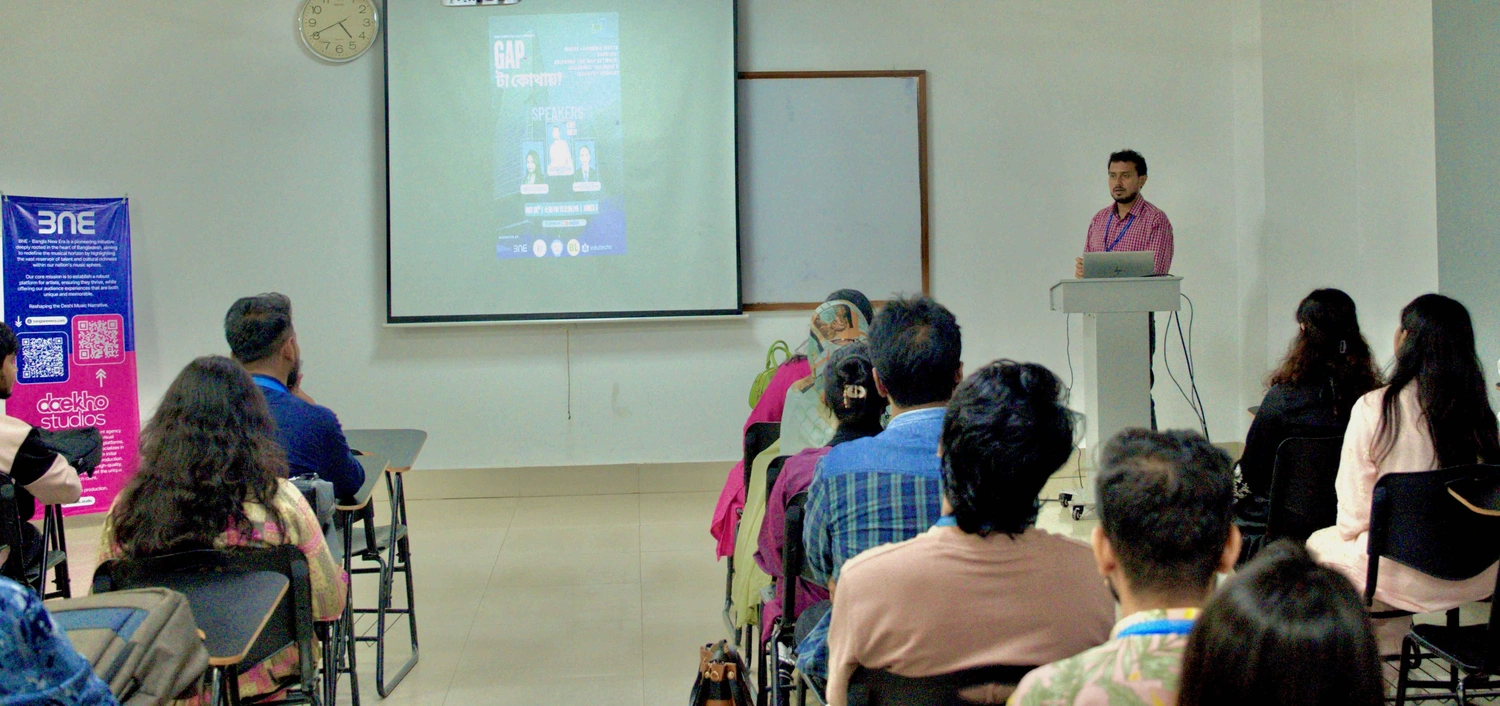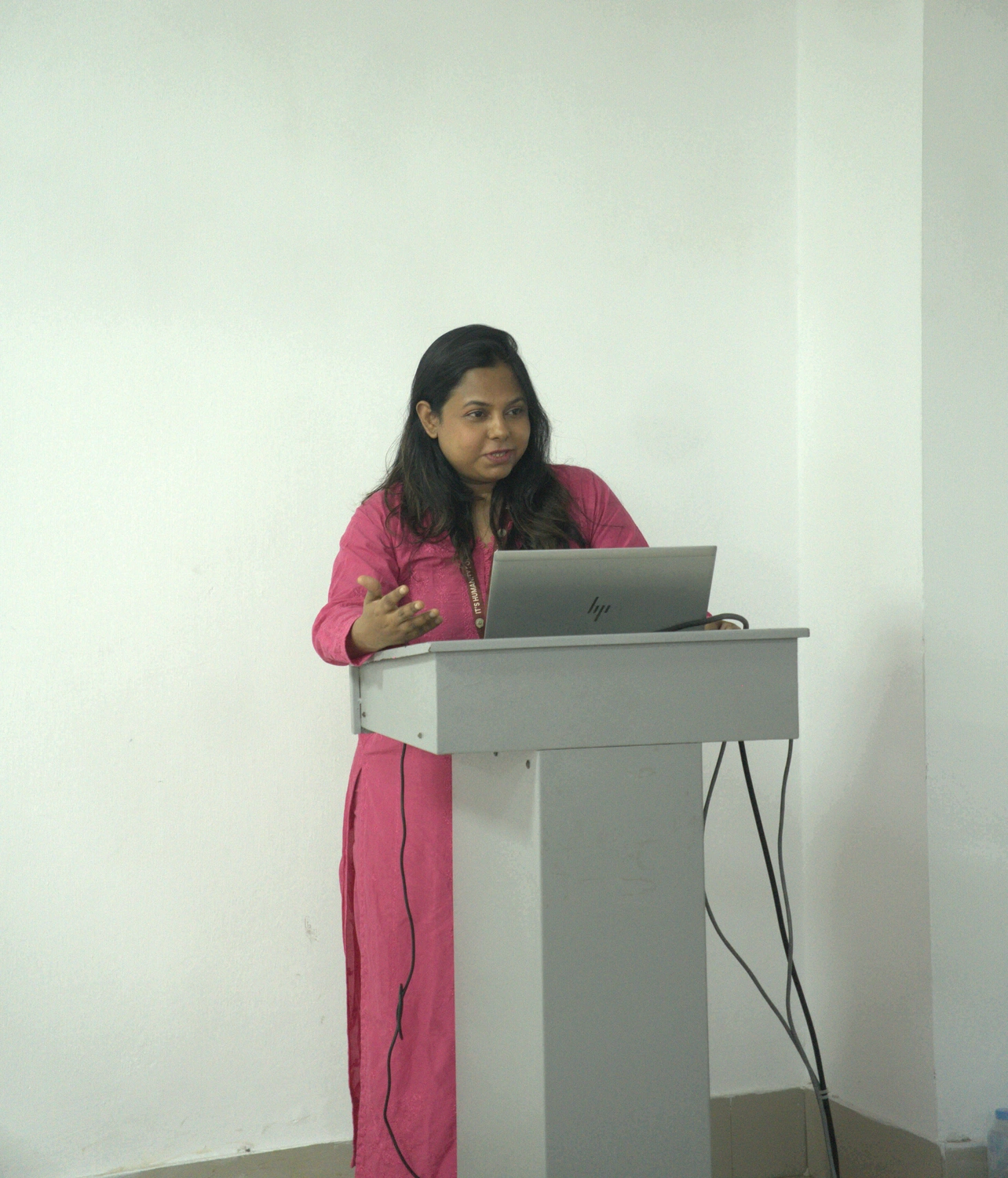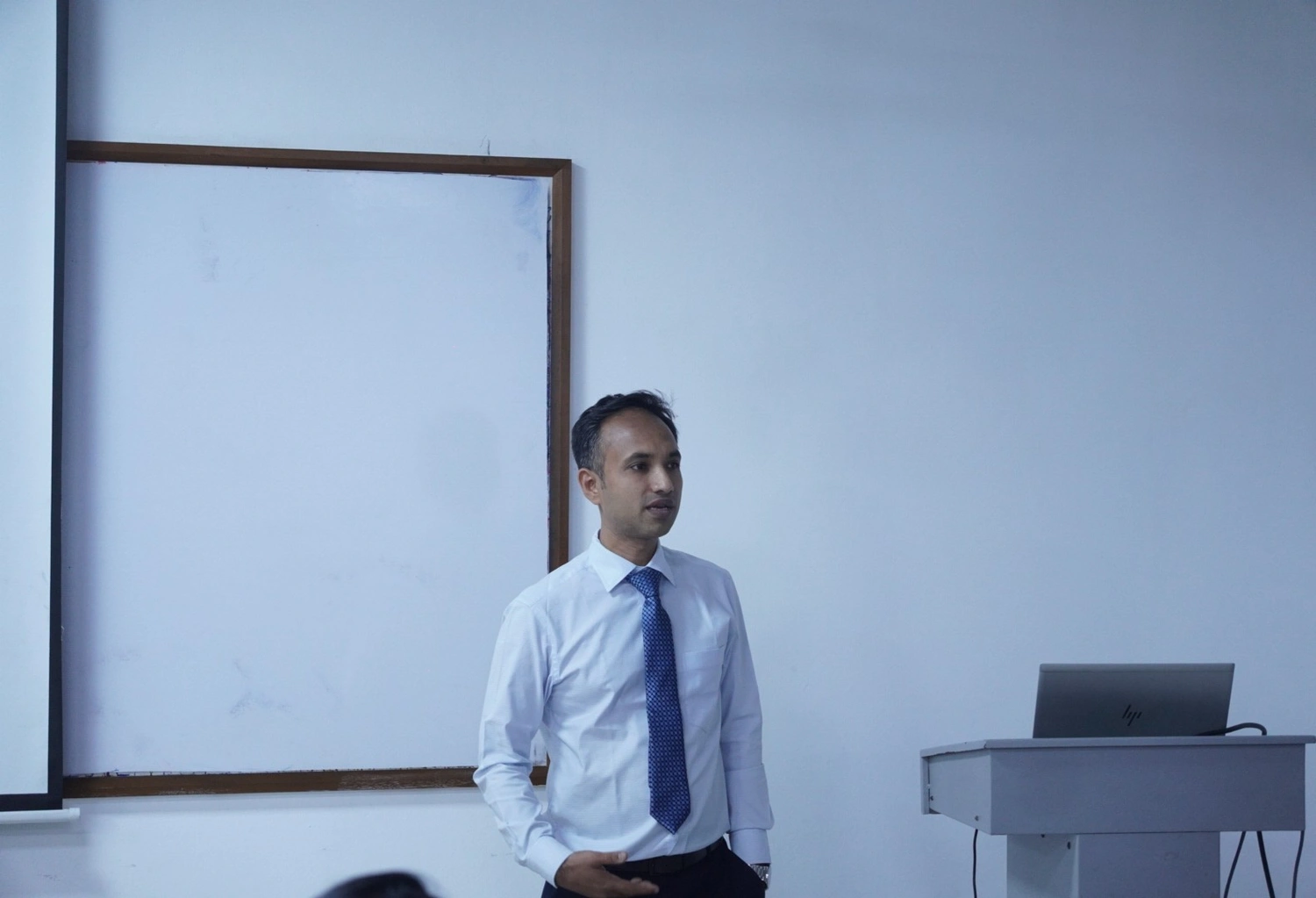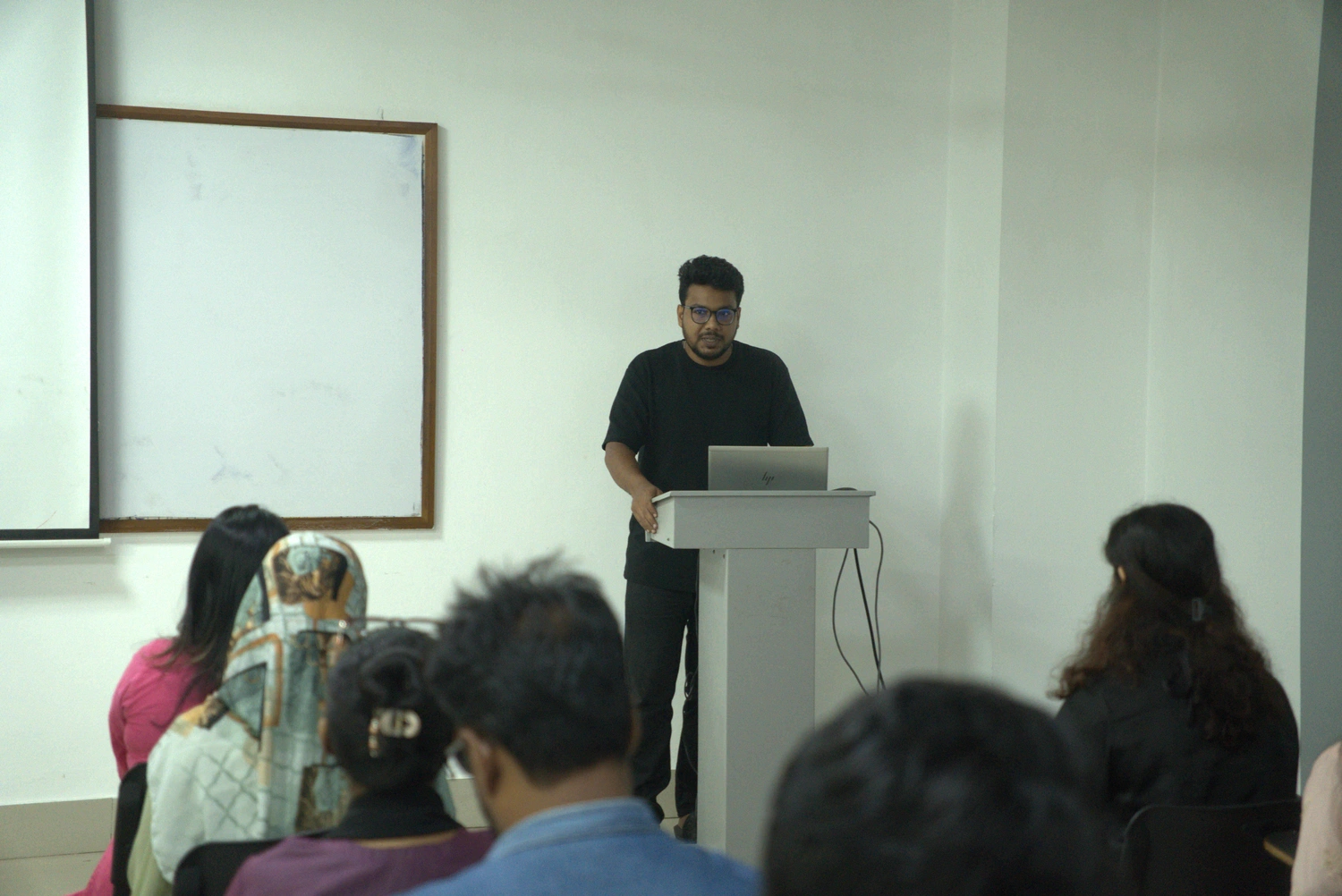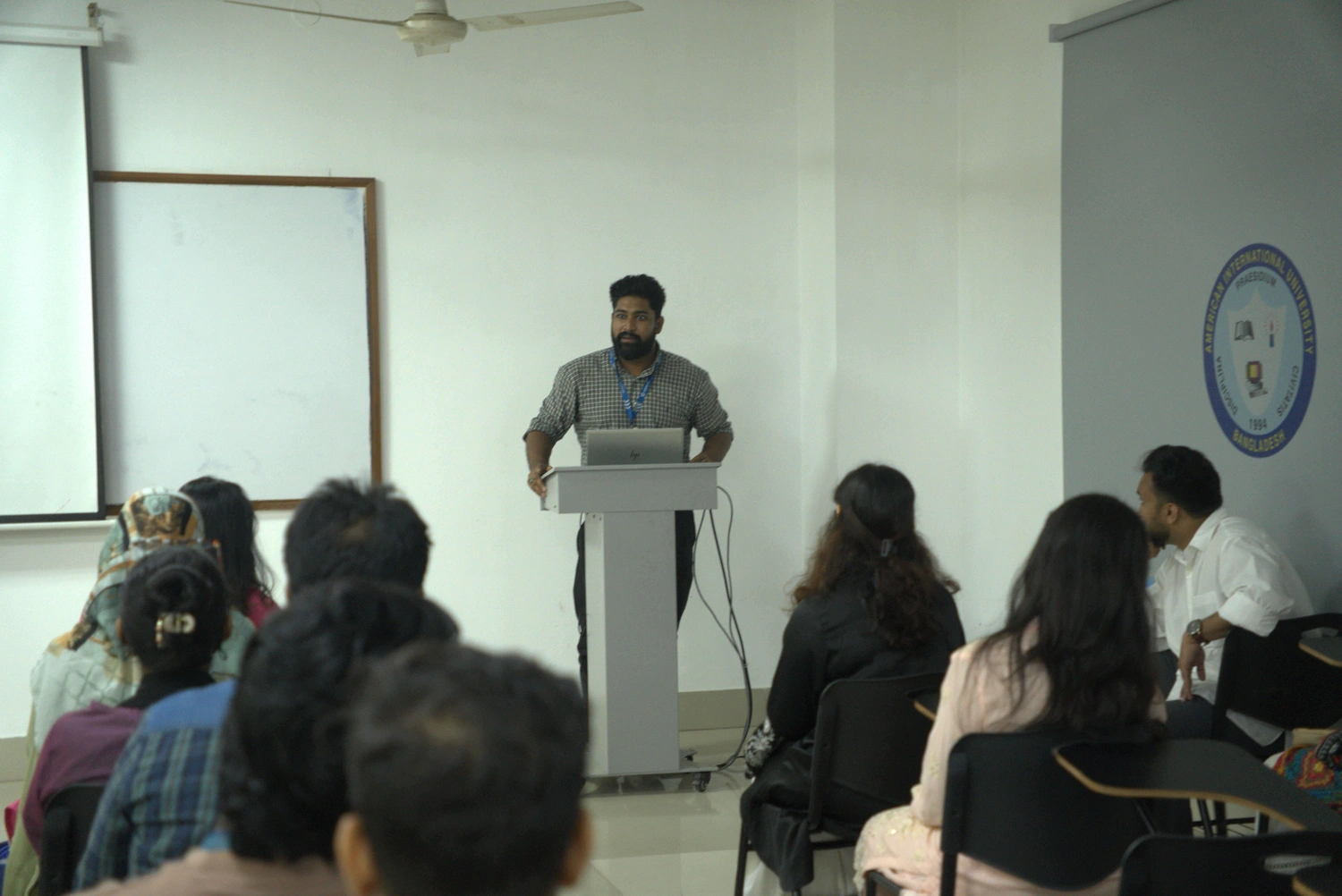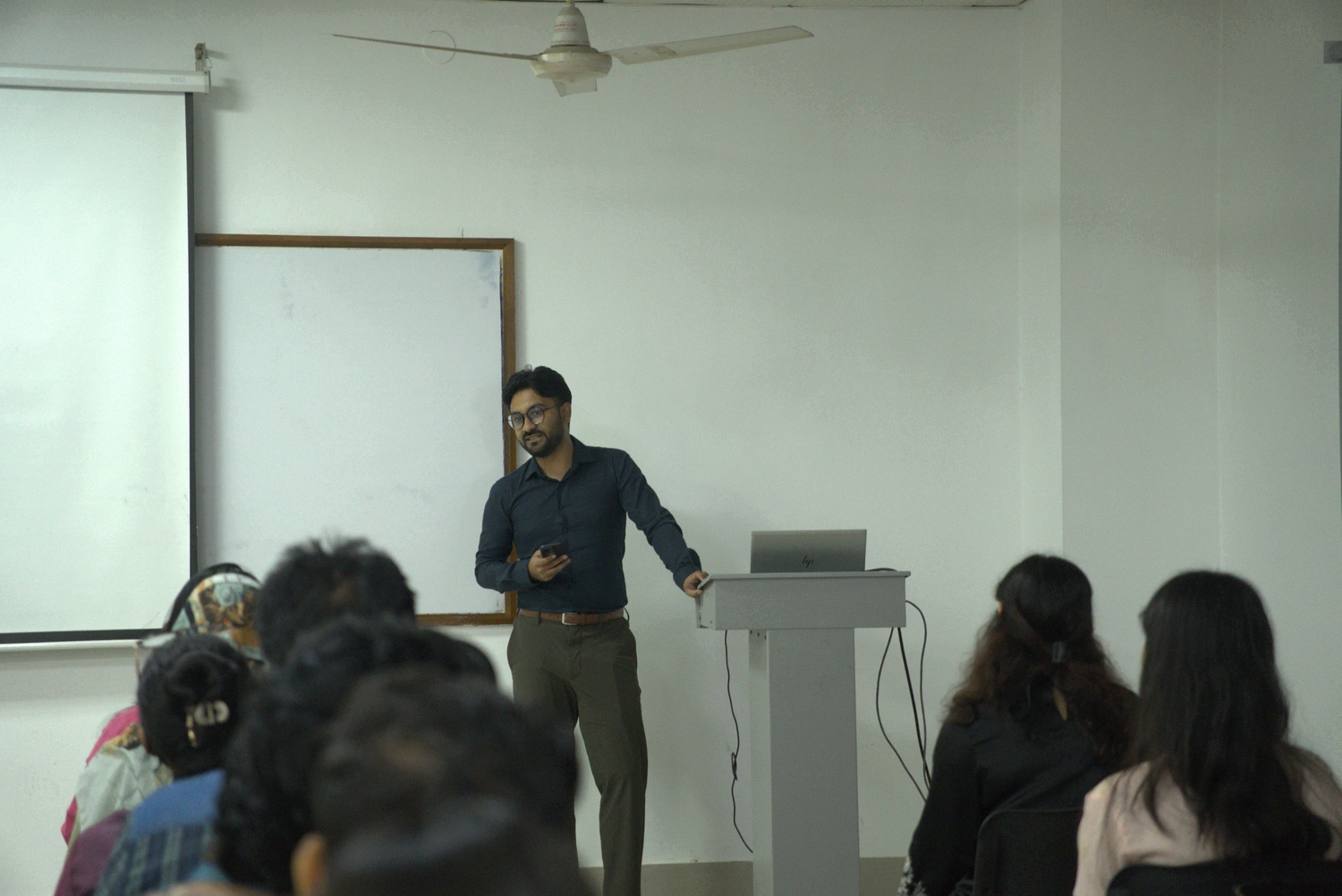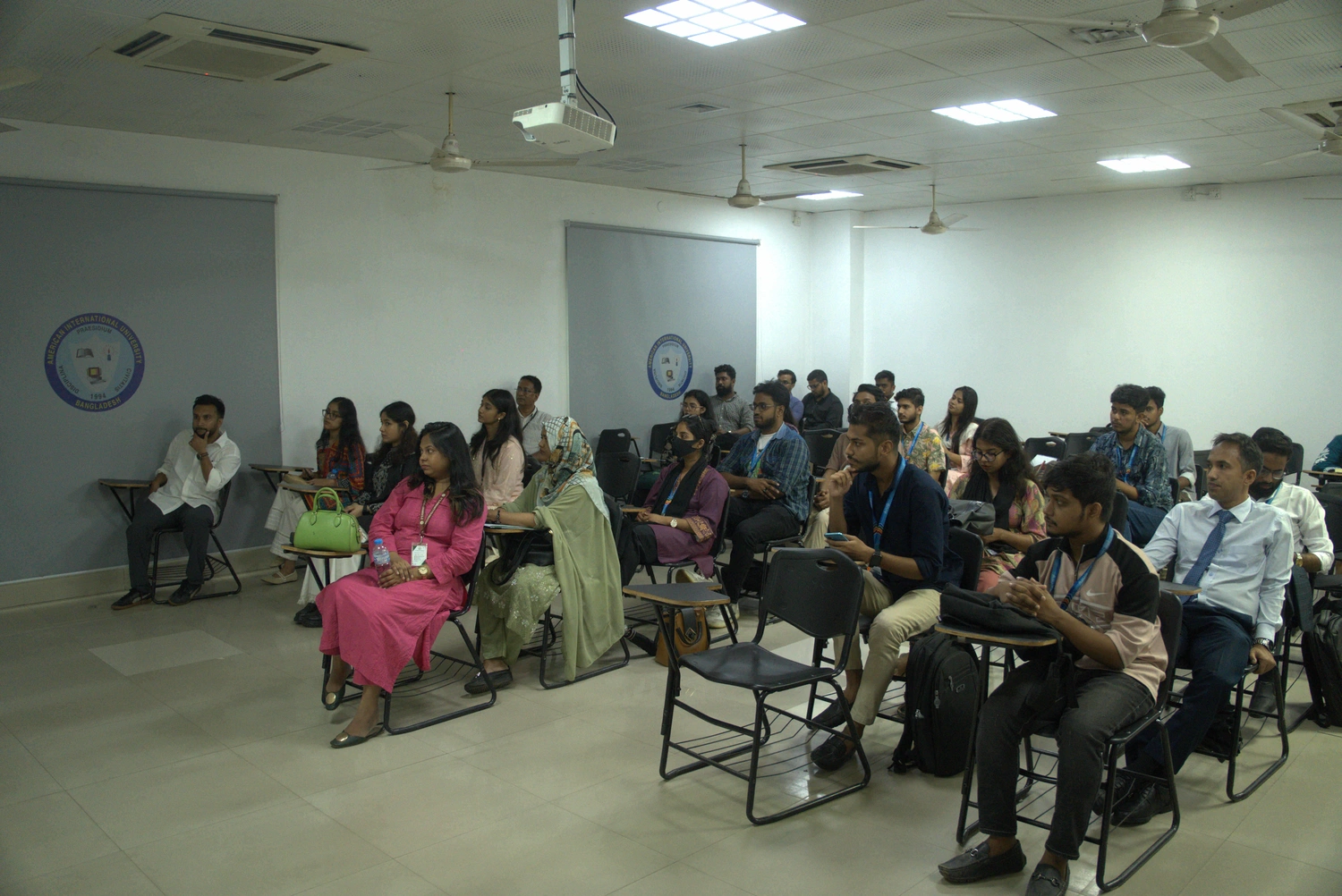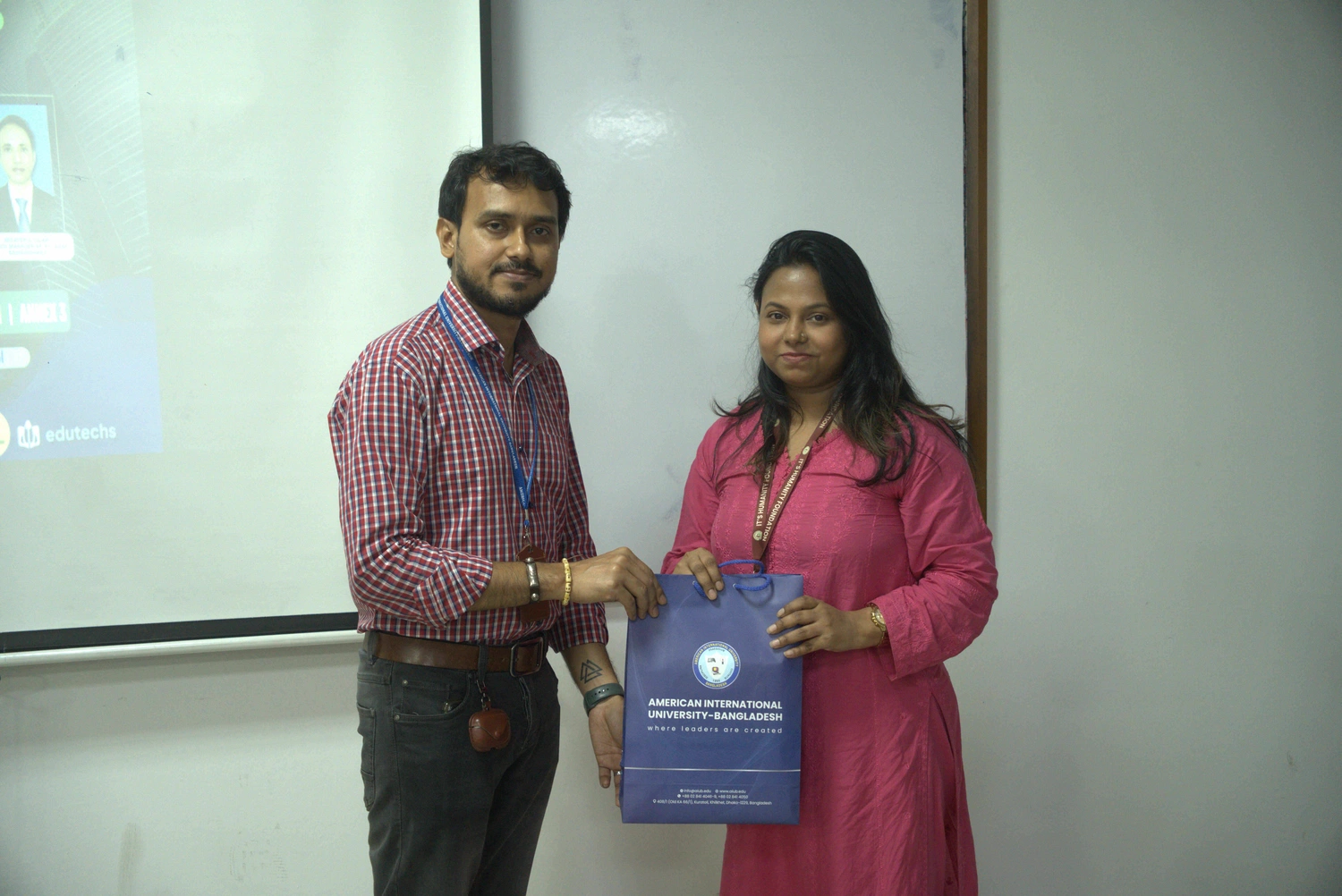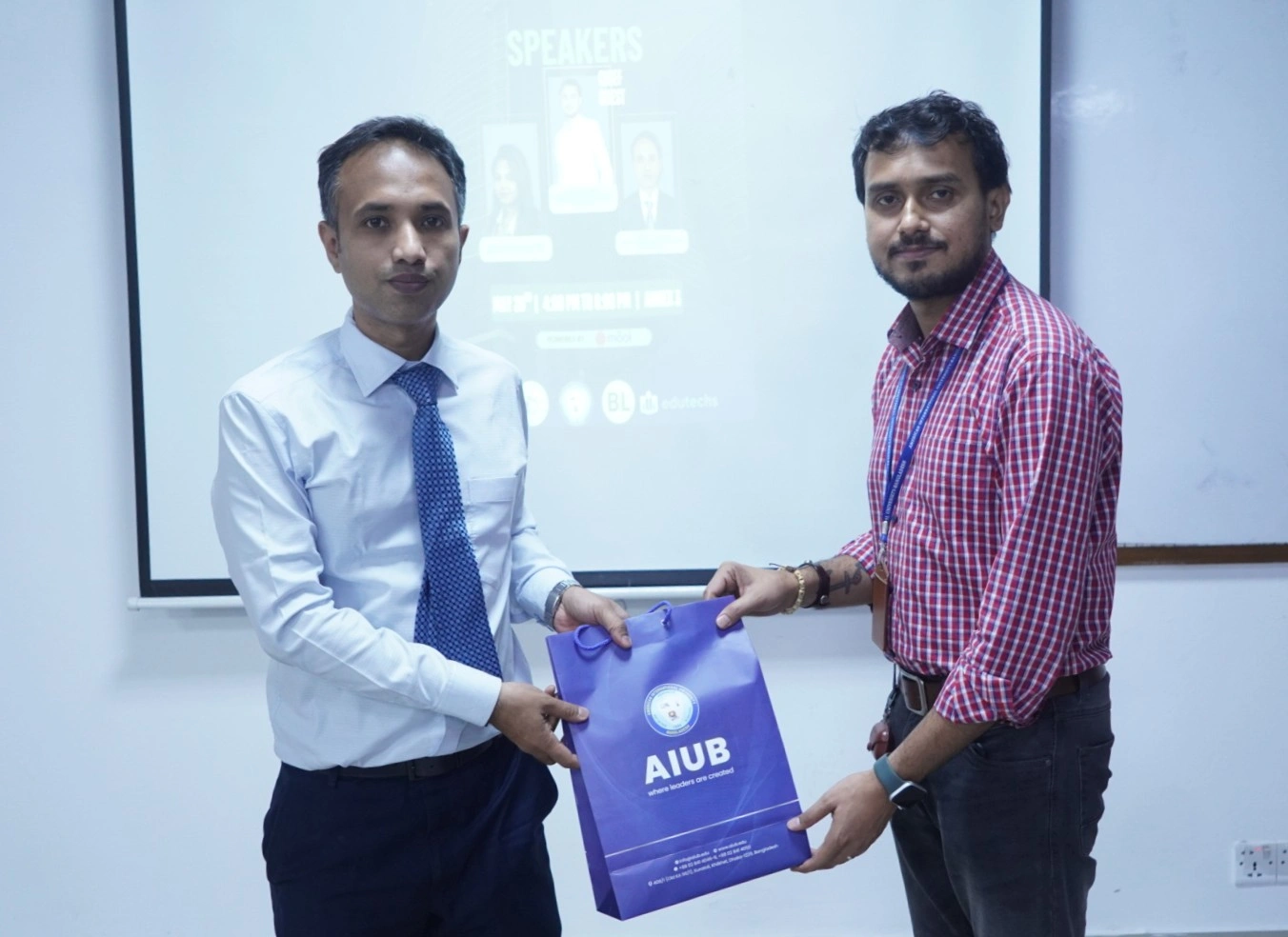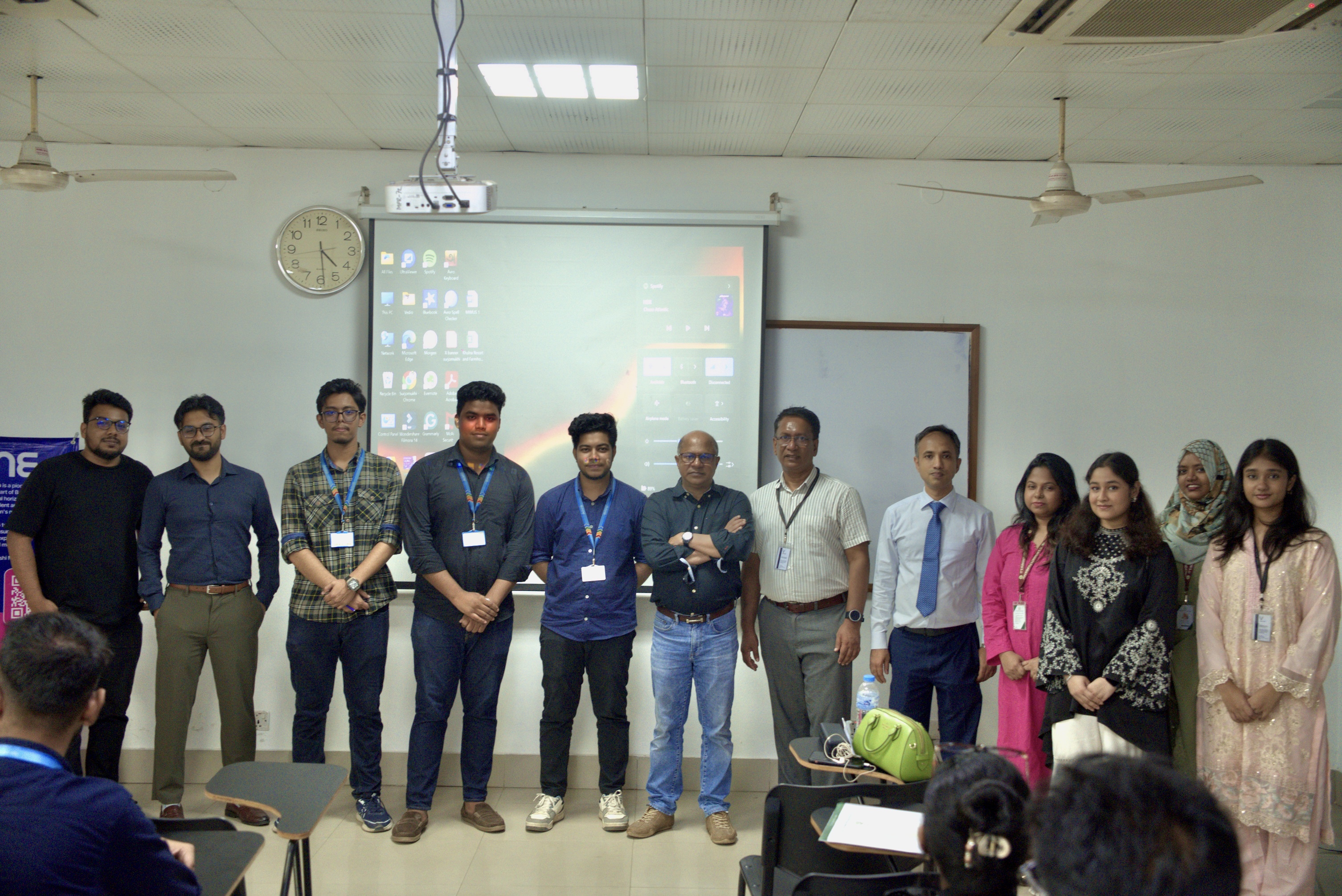On Monday, May 26, 2025, an engaging session titled “Where is the Gap?” was held at the American International University–Bangladesh (AIUB), focusing on the critical disconnect between academia and the technology industry. The event was organized by the AIUB Computer Club and moderated by Dr. Khandaker Tabin Hasan, Professor and Head of Graduate Programs, Department of Computer Science, AIUB.
The session featured a distinguished panel of guests, including:
- Mr. Abhijit Bhowmik, Associate Professor and Special Assistant of the Office of Student Affairs (OSA), Department of Computer Science, AIUB
- Ms. Noor-E-Fayzun Nahar, Head of Programs, IHF
- Mr. Sefayetul Islam, Branch Manager, IFIC Bank (Bashundhara)
- Mr. Riyaz Ali, Project Manager, Qinetic Network
- Mr. Muhammad Joy, Business Development Manager, Edutechs
- Mr. Tahmid Khan, Co-founder, BacharLorai
The session ran from 4 PM to 6 PM and provided students with valuable perspectives from professionals across diverse sectors. It addressed the common dilemma faced by fresh graduates in the tech industry, where employers often expect a high level of skill and adaptability. Through interactive dialogue, the session offered critical insights into the skills and competencies necessary to bridge the gap between academic learning and industry expectations.
Dr. Tabin Hasan opened the session by outlining its purpose—encouraging students to discover new career paths and identify the skills required to thrive in the tech world. He then invited Mr. Abhijit Bhowmik to lead the discussion.
Mr. Bhowmik emphasized the importance of proactive engagement—advising students to attend seminars, participate in competitions, and communicate with industry professionals to assess their skill gaps. He highlighted the need for continuous self-improvement to stand out in a competitive job market.
Ms. Noor-E-Fayzun Nahar shared insights into her non-profit organization's initiatives and their connection to the tech sector. She stressed the importance of applying knowledge, acquiring both technical and soft skills, and adapting to changing environments. She also encouraged students to explore internship, fellowship, and volunteer opportunities provided by her organization to build professional networks and experience.
Mr. Sefayetul Islam recounted his professional journey in the banking sector, describing the transition from manual operations to digital systems. He noted the increasing demand for IT professionals in banking, particularly in areas like cybersecurity, software, and hardware maintenance. He advised students to consider higher education such as an MBA, and shared information about IFIC Bank’s start-up loan program, including its procedures.
Mr. Riyaz Ali discussed the integration of technology into the creative industry, particularly music. He encouraged students with creative passions to explore tech-enabled opportunities in diverse fields.
Mr. Muhammad Joy introduced Edutechs, a company focused on learning management systems. He highlighted projects like an attendance tracking device and hotel management systems, concluding with an encouraging message to trust the process and remain persistent.
Mr. Tahmid Khan spoke about BacharLorai, a non-profit initiative supporting the Bangladeshi diaspora. He stressed the importance of addressing gaps in resources and opportunities and promoting global connections and civic engagement.
The Q&A session was highly interactive, with students raising thoughtful questions. One notable inquiry involved the possibility of transitioning from a Computer Science background to management roles. The panelists responded by affirming that such transitions are not only possible but often beneficial, provided students focus on developing adaptable skills aligned with their interests.
The event concluded with Mr. Bhowmik presenting tokens of appreciation to the speakers, followed by light refreshments for attendees. The guests and students also took group photos to commemorate the occasion.
Overall, the session was a valuable platform for identifying the challenges fresh graduates face and exploring effective strategies to bridge the gap between academic preparation and industry demands.
